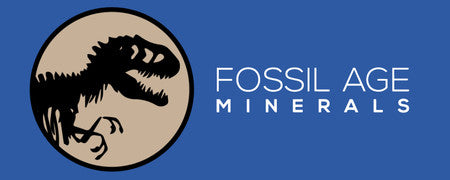4.2" Hypacrosaurus Dinosaur Fossil Rib Bone Two Medicine FM Cretaceous MT COA
Location: Two Medicine Formation, Montana (Private Land Origin)
Weight: 2.5 Ounces
Dimensions: 4.2 Inches Long, 1.4 Inches Wide, 0.5 Inches Thick
Comes with a Certificate of Authenticity.
The item pictured is the one you will receive.
This is a real fossil.
Hypacrosaurus Dinosaur
Hypacrosaurus means ‘near the highest lizard’, and in this context, the ‘lizard’ was actually the dinosaur Tyrannosaurus, one of the largest dinosaurs in the ecosystems of late Cretaceous North America, but only about a third larger than Hypacrosaurus in the largest individuals (twelve meters for large individual Tyrannosaurus compared to nine meters for Hypacrosaurus). Interestingly Hypacrosaurus and other dinosaurs like it may have actually been prey to Tyrannosaurus and other related genera such as Albertosaurus. Evidence for this comes from a huge bite wound inflicted on the back of an Edmontosaurus that closely matches the shape of a Tyrannosaurus mouth. Because the bones in the wound actually healed afterwards this proves that the Edmontosaurus in question was alive when it happened, and not a case of a tyrannosaur simply scavenging an existing carcass.
When you compare this to the twenty or so eggs in each Hypacrosaurus nest, you get the conclusion that Hypacrosaurus were breeding at a rate to compensate for high mortality levels. Assuming that environmental conditions were not so much of a factor, this could be because Hypacrosaurus was a viable and common prey species of the time, and tyrannosaurs withstanding, other predators of Hypacrosaurus may have included troodontids like Troodon. These small predators would have been a particular threat to the smaller individuals of Hypacrosaurus, reducing the numbers growing to adulthood.
The crest of Hypacrosaurus is similar to that of its relative Corythosaurus, though wider and not as high. This crest was also hollow which confirms its establishment as a lambeosaurine hadrosaurid (the group typified by Lambeosaurus). Several theories have been made about the function of lambeosaurine head crests, though the one with the most support concerns visual display so that different species of hadrosaur can tell each other apart, probably in a similar fashion to how the differences in the forms of horns and neck frills allow different genera of ceratopsian dinosaurs to be identified.





















